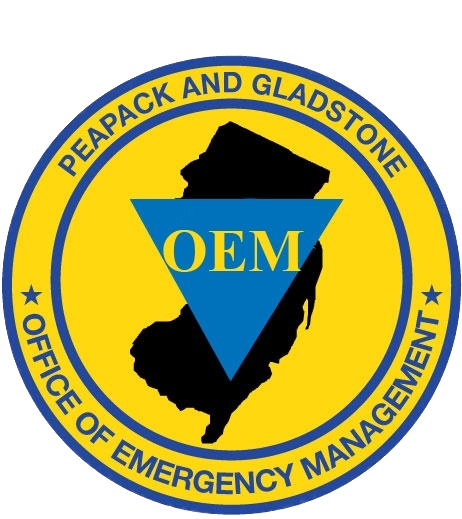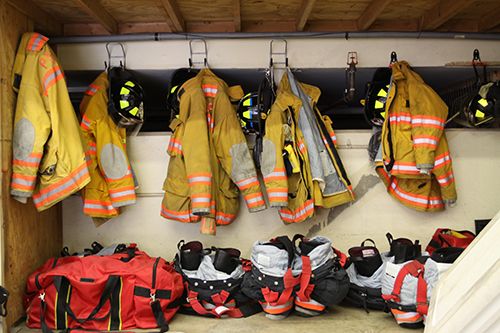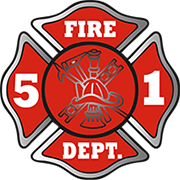
OPERATION CHECK-IN
against COVID-19
Click here for the SAFE or UNSEEN FORM
Versión en español a continuación
We need your help. Everybodys. We know that many of our neighbors live alone or may all be sick at once. Some of our neighbors are elderly, some are disabled, some are just so fearful of the virus that they are not going out. We want to make sure that every one of our residents is ok. We don’t want anyone suffering silently in their homes when they could use help.
HOW CAN YOU HELP? Do 3 things:
- Mark yourselves SAFE
- CALL a few of your neighbors (left, right, across the street, etc). If you speak with them mark them SAFE and:
- PASS IT ON: ask them to call a few of their neighbors to mark them SAFE and PASS IT ON.
- If you DON’T see or speak with one of your close (next door left or right or across the street or someone you usually see) neighbors over these 3 days, mark them UNSEEN.
HOW TO MARK someone SAFE or UNSEEN?
GOTO checkin.pgfire.org and enter the address of the neighbor and mark that neighbor SAFE or UNSEEN
OR
SEND an email to This email address is being protected from spambots. You need JavaScript enabled to view it. with the address (house number, street name, apartment number, town) and then “SAFE” or “UNSEEN”
OR
Call 908-396-6229 and leave a voicemail message with the address you are marking and the whether you are marking them SAFE or UNSEEN.
If we all do this, we can get a clear sense of who is SAFE and who should be checked on to ensure they are safe. We are all in this together and some of us need a little more help than others. Help keep your neighbors safe in the face of this virus.
PLEASE PARTICIPATE IN OPERATION CHECK-IN
OPERACION PRESENTARSE
Necesitamos ayuda de todos. Nosotros sabemos que muchos de nuestros vecinos viven solo, o quizás se enferman de repente. Algunos de nuestros vecinos son mayores, algunos son discapacitado, algunos solamente tienen miedo del virus y no salen. Queremos asegurarnos de que todos nuestros residentes estén bien. No queremos que alguien sufra en silencio en su casa cuando puedan recibir ayuda.
¿Como pueden ayudar? Sobre los próximo tres días hacer tres cosas.
- Márquese seguro (SAFE)
- Llamen algunos de sus vecinos (a la derecha, izquierda o otro lado de la calle). Si hablan con ellos marcarlos seguro (SAFE)
- Preguntarles que ellos llamen algunos de sus vecinos y márquelos seguro (SAFE).
- Si no ves ni hablas con sus vecinos mas cercano (al lado a la izquierda, a la derecha o alguien del otro lado que normalmente ves) durante tres días, marcalos ausente (UNSEEN)
¿Cómo puedo marcar alguien seguro (SAFE) o ausente (UNSEEN)?
Visite https://pgfire.org/operationcheckin y entra la dirección de su vecino y marcarlos seguro (SAFE) o ausente (UNSEEN)
o
Mande un Email a This email address is being protected from spambots. You need JavaScript enabled to view it. con la dirección de su vecino indicando seguro (SAFE) o ausente (UNSEEN)
o
Llama 908-396-6229 y deja un mensaje con la dirección de su vecino que estas marcando y si están seguro (SAFE) o ausente (UNSEEN).
Si todos hacemos esto, podemos tener una idea clara de quien esta seguro (SAFE) y quien debe ser verificado. Estamos en esto juntos y algunos de nuestros vecinos necesitan un poquito mas de ayuda. Ayuda a mantener sus vecinos seguros frente a este virus.
Peapack-Gladstone Fire Department
Frequently Asked Questions
- Isn't the Peapack Gladstone Fire Department paid?
- No. The firefighters in all the communities around here are volunteers. We do this as a service to our neighbors and community. We do get a small contribution to a retirement program each year.
- Am I too old to join?
- The only age restriction is that you must be at least 16 (to be a junior member) or 18 to be a regular member. There is no upper age limit so long as you are physically capable of carrying out your duties.
- Am I fit enough to join?
- The company offers a thorough initial and annual physical to ensure you are fit enough for the job.
- I am afraid of Ladders/Fire/Heights/the sight of Blood/etc.
- Your limitations will be respected. There are many jobs to be done at an incident scene. We have people who are afraid of heights and others who do not do well in the presence of blood. We'll work with that.
- I work out of town. I won't be able to make some calls.
- No problem. We have calls 24 hours a day 7 days a week. No member makes all calls due to any number of personal and professional obligations and conflicts. Our borough is lucky in that many of our Public Works employees are firefighters so day time calls are augmented by them.
- How much training do I have to have?
- To be a fully qualified interior firefighter you need to take a course at the training academy. These courses are usually 4 months of two evenings per week with a couple of weekend days tossed in for a total of 180 hours. We also have drills once per month and a couple of weekend days per year for specialized training (vehicle extrication, ice rescue, etc). Even before completing training there are many things you can do at the incident scene to help.
- How often do I have to show up?
- Routinely, we have one general meeting, drill, and engineers' night each month. There are no mandatory meetings though in order to be a qualified "active" member you must make a few meetings and drills each year as well as a certain percentage of calls.
- When do I get to gear up and ride the red truck with flashing lights and siren?
- Once your application is accepted by the company and the borough, you will be provided with gear and a pager at which point you're ready to make calls with us.
- If I go to a call before training, I won't know what to do.
- Everyone was there once. There is plenty to do. You'll be assigned something to do or you can just watch and get an understanding of what is going on. While doing that you'll likely see something you can do to help (e.g. unkink a hose, get some equipment off the truck, help carry something heavy).
- But Fire Fighting is dangerous?
- The most common cause of firefighter death is a heart attack and the second most common cause of death is traffic. We get physicals every year to detect heart weakness to address the first and take special precautions when working on roads for the second.
- What makes a good firefighter?
- A willingness to serve his/her neighbors, a willingness to work hard (it can be hard, strenuous work), an appreciation for teamwork, and camaraderie; some mechanical acumen/handiness is helpful.
- I am a white-collar guy. Is this really for me?
- It is if you're willing to get your hands dirty. Firefighting is a blue-collar as a job gets. You can be assured of getting dirty, smelly, and sore from strenuous work. We have lawyers, executives, consultants, finance people as well as plumbers and heavy equipment operators as very active members. Think of it this way, on a day you have a big call, you can probably skip the gym - and you'll have helped your neighbors.
- I am a woman. Can I run into burning buildings too?
- Absolutely! Many fire departments have active female members and officers. We would love to have you join. Physical capability is considered for everyone. Everyone has their limitations (assuming you have any).
- How many calls does the PG Fire Company run?
- We average about 175 calls per year.
- Do we go to other towns?
- Yes, we participate in "mutual aid" which means we help out other nearby towns with equipment and manpower just as they come to our town when we need their equipment and people.
- Do I get to drive the big red truck and make the siren scream running through town?
- Eventually, if you want to. We also have cool, loud air horns.
- Do I get free food, beer, etc?
- Sometimes.
- Do I have to buy my own gear?
- No. We provide what you need.
- Will I get dirty?
- Yes.
- Will I get my street clothes dirty?
- Your fire gear goes over your street clothes. On an average call, they might be a little wrinkled when you get back. On a big call, you'll want to wash them.
- Will I learn any skills I can use in regular life?
- Definitely. Probably the most useful qualification you'll get is CPR and First Aid. There are many other skills that cross-over into your regular life as well.
- Do you really get cats out of trees?
- Yes but more often we save ducklings from storm drains.
- I don't think firefighting is for me. What else can I do?
- The fire company also has associate membership available for those who want to help with non-operational activities (e.g. our annual car show, etc). Alternatively, Peapack Gladstone has a volunteer Rescue Squad that is always seeking members and the borough's Office of Emergency Management is always seeking volunteers to become CERT (community emergency response team) members.
- What is CO2 and why do I have to have the detector in my house?
- First of all it is CO, not CO2, CO is carbon monoxide which is a colorless, odorless gas given off normally given by combustion of some sort of fuel. It can concentrate in your house due to a malfunctioning furnace, fireplace, or flue. It can also concentrate in your house from an engine running in or NEAR your house (e.g. car left running in your garage or home generator running upwind of an opening in your house). Undetected (or ignored) in your home CO binds with the hemoglobin in your blood replacing the oxygen and you get sleepy and fall asleep - forever. Keep your CO detectors working, and if they go off, call 911. (C02 is carbon Dioxide and is the gas you exhale)
- Why does the fire company make so many calls to false alarms?
- In the old days, the fire company only got called out when there was smoke or flames. Today most buildings have smoke detectors. Smoke detectors alert people to a fire often long before smoke or fire is seen in a house. Smoke detectors have saved countless lives. But they also falsely trigger from time to time or are set off by minor events such as "culinary mishaps" (e.g. garlic bread left in the oven too long). We'd rather come to your house and find that it was a false alarm than to miss a real fire.
VOLUNTEERS ARE ALWAYS NEEDED. PLEASE JOIN.

Call our Non-emergency number
for more information: 908.396.1449
Meetings:
Meetings are held the first Tuesday every month, 7:30 pm at the Fire House, 6 Dewey Avenue. Drills are held on the last Tuesday of every month.
Questions?
Visit the FAQ / frequently asked questions page for answers to common questions about being a volunteer.
Members:
Chief: This email address is being protected from spambots. You need JavaScript enabled to view it.
Deputy: This email address is being protected from spambots. You need JavaScript enabled to view it.
Assistant: This email address is being protected from spambots. You need JavaScript enabled to view it.
President: This email address is being protected from spambots. You need JavaScript enabled to view it.
Vice President: This email address is being protected from spambots. You need JavaScript enabled to view it.
Secretary: This email address is being protected from spambots. You need JavaScript enabled to view it.
Treasurer: This email address is being protected from spambots. You need JavaScript enabled to view it.
 Fire Department
Fire Department